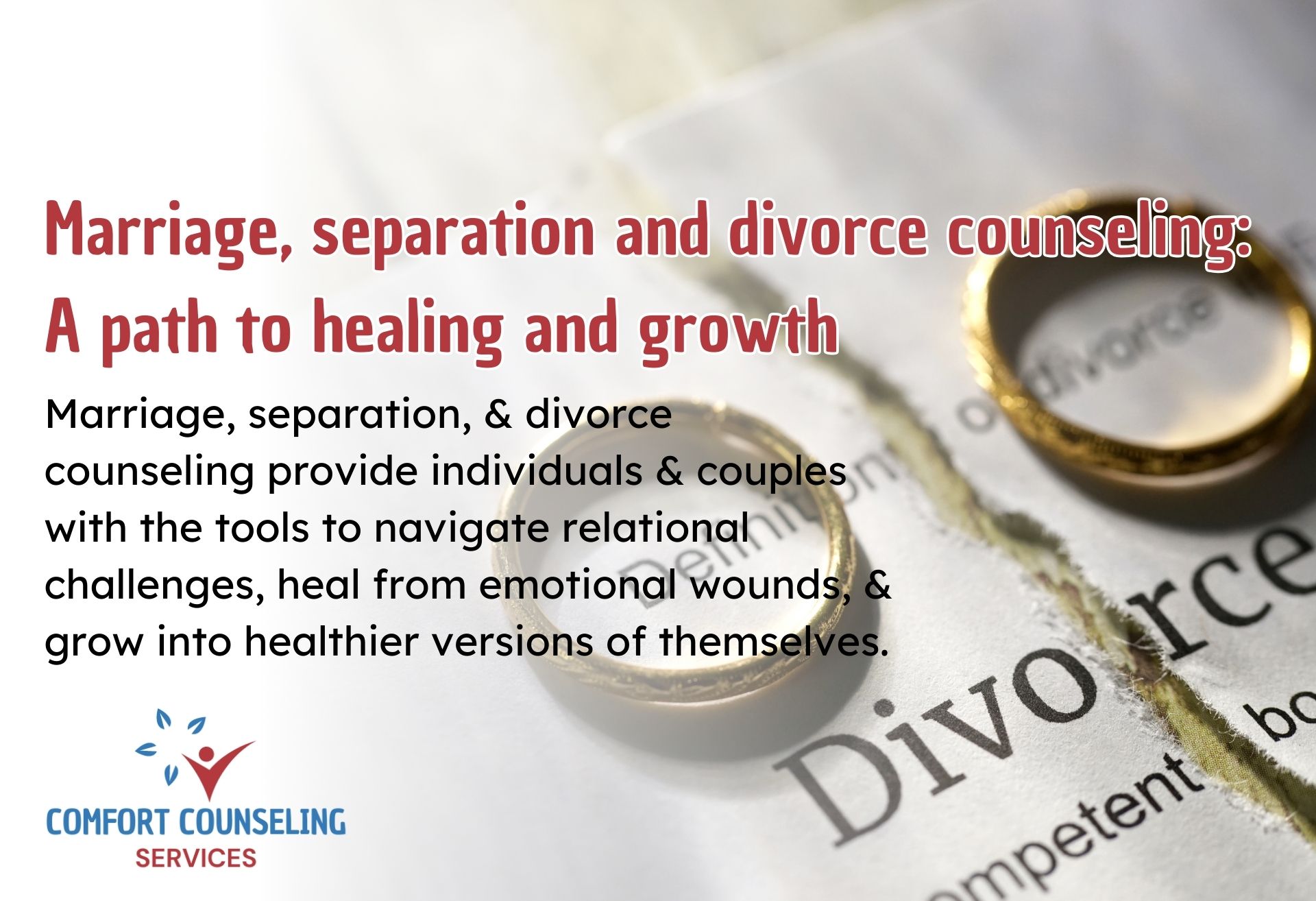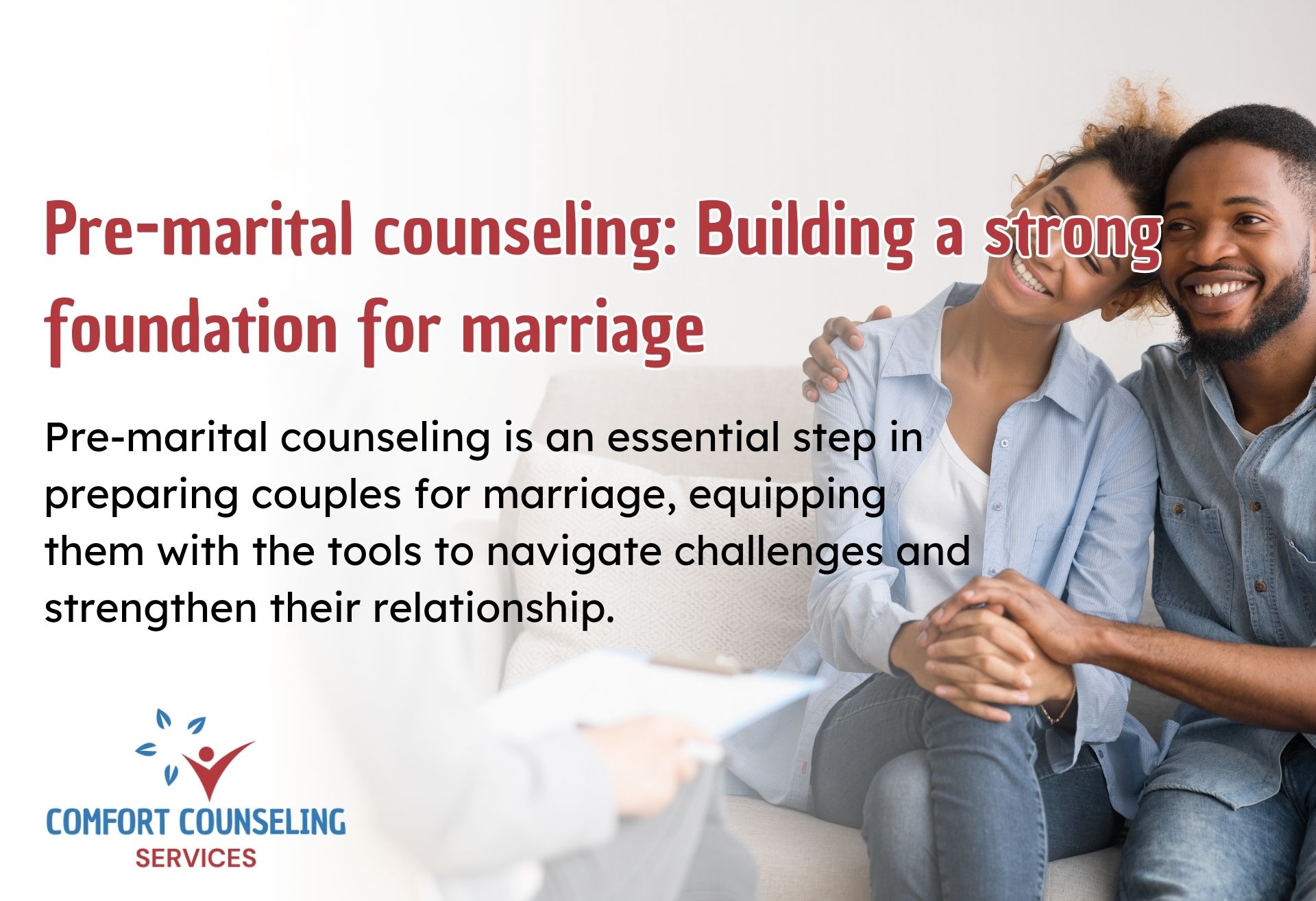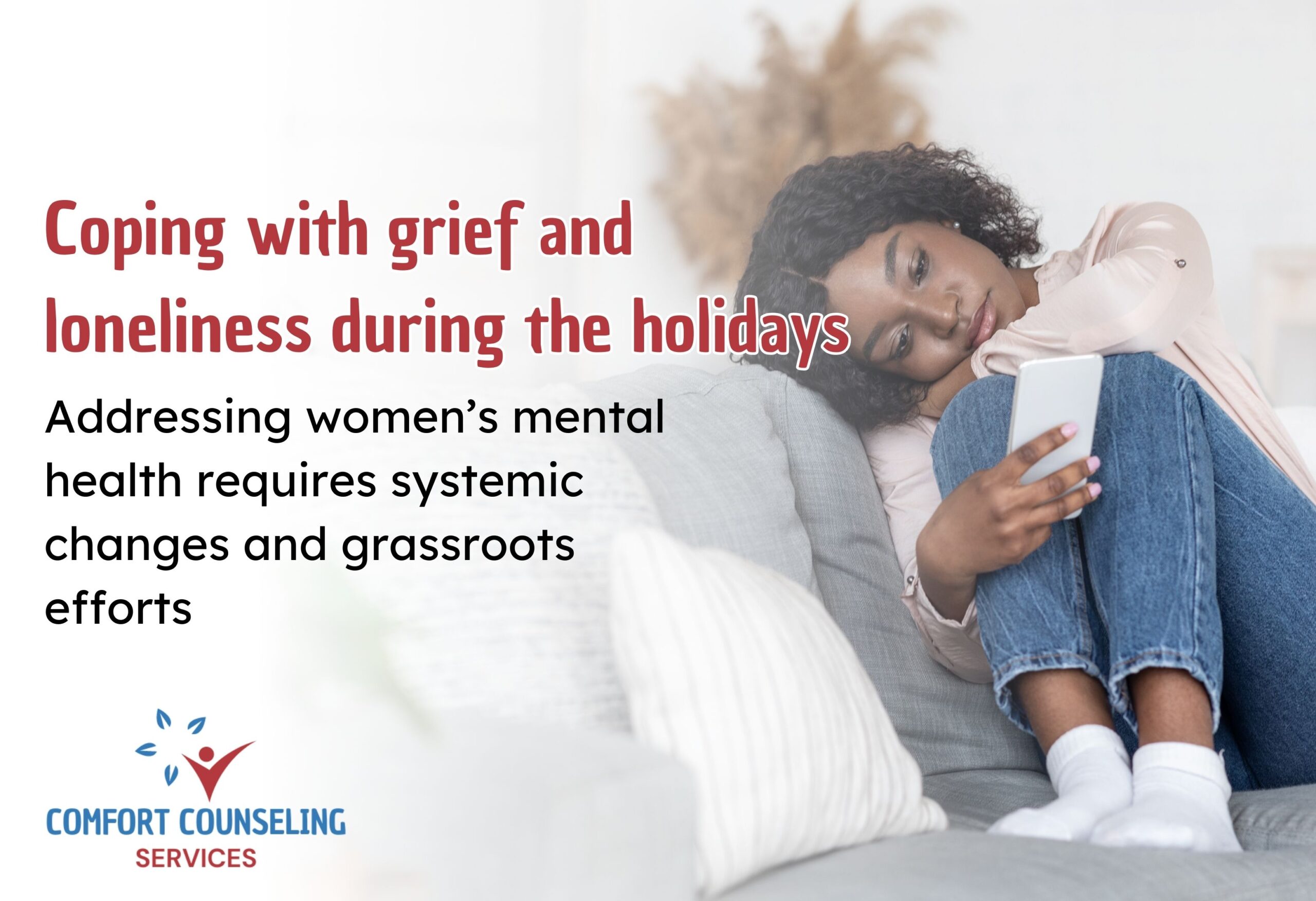Introduction
Marriage is a deeply significant institution that shapes individuals, families, and society. However, challenges such as communication breakdown, infidelity, financial struggles and incompatibility can lead couples to seek professional counseling. In cases where reconciliation is not possible, separation or divorce may become the only viable solution. Whether working towards rebuilding a marriage or navigating the emotional turmoil of separation and divorce, counseling plays a crucial role in promoting healing, emotional well-being and personal growth.
This blog explores the importance of marriage, separation, and divorce counseling, the psychological effects of marital challenges, and evidence-based counseling approaches to support individuals and families during these transitions.
The role of marriage counseling
Marriage counseling, also known as couples therapy, is a form of psychotherapy that helps partners improve their relationships. It focuses on conflict resolution, emotional connection, and developing healthy communication skills. Research shows that Emotionally Focused Therapy (EFT), developed by Dr. Sue Johnson, is one of the most effective approaches for couples, with a 75% success rate in reducing distress (Johnson, 2019).
Common issues addressed in marriage counseling
- Communication breakdown – Misunderstandings, lack of listening and poor conflict resolution often create emotional distance between partners (Gottman & Silver, 2015).
- Infidelity and trust issues – Rebuilding trust after betrayal requires open communication, honesty and professional guidance (Glass, 2016).
- Financial stress – Differing financial values and spending habits can cause tension in relationships (Dew & Dakin, 2011).
- Intimacy and emotional disconnection – A lack of physical and emotional closeness can lead to dissatisfaction and disconnection (Perel, 2017).
- Parenting conflicts – Differences in parenting styles can create marital strain and require joint problem-solving (Pleck, 2010).
Evidence-based marriage counseling approaches
- The Gottman Method – Based on over 40 years of research, this approach helps couples improve their relationship by fostering “The Sound Relationship House,” which includes trust, commitment and effective conflict management (Gottman & Silver, 2015).
- Cognitive Behavioural Therapy (CBT) for couples – Helps partners identify negative thought patterns and replace them with positive behaviours (Epstein, Baucom, & Daiuto, 1997).
- Emotionally Focused Therapy (EFT) – Focuses on identifying emotional patterns and strengthening bonds (Johnson, 2019).
- Imago Relationship Therapy – Encourages deep emotional understanding and communication (Hendrix, 2008).
Separation counseling: managing the transition
When a couple decides to separate, counseling can provide emotional support and guidance to help both partners manage the transition in a healthy way. Studies show that separation counseling reduces emotional distress, improves co-parenting relationships, and enhances personal growth (Sbarra & Emery, 2008).
Key areas of focus in separation counseling
- Emotional processing – Helping individuals cope with grief, anger, and uncertainty (Neff & Karney, 2005).
- Children and co-parenting – Assisting parents in creating a stable, nurturing environment for their children (Amato, 2010).
- Decision-making support – Helping couples decide whether to reconcile or proceed with divorce (Vangelisti & Perlman, 2018).
Helpful resources on separation
- Podcast: The Divorce Survival Guide by Kate Anthony – Provides expert advice on navigating separation and co-parenting.
- YouTube Channel: Dr. Ramani – Covers narcissistic relationships and emotional healing after separation.
- Blog: Psychology Today – Separation and Divorce – Offers research-based insights on managing relationship transitions.
Divorce counseling: healing and moving forward
Divorce is one of life’s most stressful events, often leading to anxiety, depression, and identity crises. Studies show that individuals who undergo divorce counseling experience better emotional adjustment and reduced psychological distress (Hetherington & Kelly, 2002).
Key areas of focus in divorce counseling
- Grief and loss recovery – Accepting the end of a relationship and rebuilding self-identity (Worden, 2018).
- Self-compassion and growth – Encouraging self-care, emotional resilience, and personal development (Neff, 2011).
- Co-parenting support – Helping divorced parents maintain healthy communication for the well-being of their children (Amato & Gilbreth, 1999).
- Financial and legal adjustments – Navigating alimony, child support, and asset division with a balanced perspective (Braver & O’Connell, 1998).
Helpful resources on divorce recovery
- Podcast: Dear Sugar Radio – A supportive and insightful podcast on emotional healing after divorce.
- YouTube Channel: Mel Robbins – Covers topics on self-improvement, confidence, and overcoming heartbreak.
- Blog: Divorce Magazine – Offers expert advice on emotional recovery and co-parenting strategies.
Biblical and spiritual perspectives on marriage, separation and divorce
For individuals who seek spiritual guidance, the Bible offers wisdom on relationships. Ephesians 5:25 encourages love and sacrifice in marriage, while Malachi 2:16 acknowledges God’s disapproval of divorce but also emphasizes justice and compassion. Matthew 19:9 discusses the complexities of divorce, highlighting the importance of faith-based counseling. Christian counseling can provide individuals with spiritual support while integrating psychological techniques to navigate relationship challenges (McMinn, 2011).
Conclusion
Marriage, separation, and divorce counseling provide individuals and couples with the tools to navigate relational challenges, heal from emotional wounds, and grow into healthier versions of themselves. Whether working towards marital reconciliation or rebuilding life after divorce, seeking professional counseling can make a profound difference in emotional well-being and future relationships.
If you or someone you know is struggling in their marriage or going through a separation or divorce, Comfort Counseling Services is here to help. Our experienced counselors provide compassionate, research-based support tailored to your unique needs.
References
- Amato, P. R. (2010). Research on divorce: Continuing trends and new developments. Journal of Marriage and Family, 72(3), 650-666.
- Amato, P. R., & Gilbreth, J. G. (1999). Nonresident fathers and children’s well-being: A meta-analysis. Journal of Marriage and the Family, 61(3), 557-573.
- Braver, S. L., & O’Connell, D. (1998). Divorced dads: Shattering the myths. TarcherPerigee.
- Epstein, N. B., Baucom, D. H., & Daiuto, A. D. (1997). Cognitive-behavioral couple therapy. Current Opinion in Psychology, 5(2), 71-75.
- Glass, S. P. (2016). Not “Just Friends”: Rebuilding Trust and Recovering Your Sanity After Infidelity. Atria Books.
- Gottman, J. M., & Silver, N. (2015). The Seven Principles for Making Marriage Work. Harmony Books.
- Hetherington, E. M., & Kelly, J. (2002). For Better or for Worse: Divorce Reconsidered. Norton & Company.
- Hendrix, H. (2008). Getting the Love You Want: A Guide for Couples. St. Martin’s Press.
- Johnson, S. (2019). Attachment Theory in Practice: Emotionally Focused Therapy (EFT) with Individuals, Couples, and Families. Guilford Press.
- McMinn, M. R. (2011). Psychology, Theology, and Spirituality in Christian Counseling. Tyndale House.
Neff, K. (2011). Self-Compassion: Stop Beating Yourself Up and Leave Insecurity Behind. HarperCollins.



